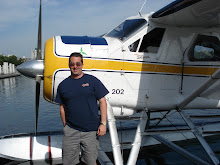Jim Sandberg 1947 -
 THE TEST PILOTS
THE TEST PILOTSAt the controls for the first flights of the prototypes, PAV-1 and PAV-2 were test pilots Paul Metz and Jim Sandberg, respectively.

The Prototype Air Vehicles" were designated "PAV-1" and "PAV-2". PAV-1 was powered with the Pratt & Whitney YF-119 engines and General Electric supplied the power for PAV-2 with their YF-120 turbofan engines. The two engine companies were locked in their own fly-off competition for engine selection. Their goal was to build an engine that could fly at sustained supercruise speeds. The maiden flight of the YF-23 PAV-1 took place on the 27th August 1990 and the PAV-2 on October 29, 1990.
Jim Sandberg is the Director of the Integrated Test Force at NAS Patuxent River MD for the F-35 Joint Strike Fighter, his sixth major developmental flight test program. He was an operational and engineering test pilot in the Marine Corps and with Northrop Grumman for 22 years through 1999, with over 6000 hours in more than 40 types, mostly tactical jets. He is an SETP Fellow, the Chairman of the East Coast Section, and chaired the East Coast Technical Symposium in 2003. He has presented technical papers at the East Coast Symposium in 1991, 1993, and 1996; San Diego in 1996; Beverly Hills in 1995, and 1996; and in Europe in 1998, and 1999. He was a Board of Directors alternate in 1992 and served on the Membership Committee from 1992-1995.
A 1969 Naval Academy graduate, Jim completed USAF UPT as an USMC Officer in 1971, USMC (Naval Aviator) transition training in 1972, and flew A-4s in the fleet and as an IP. He graduated from USAF TPS in December 1977, and the Navy Fighter Weapons School in 1979. Assigned to VX-4, he flew OT&E in the F-14 and F-4 and planned and conducted the first two operational evaluations of the F-18A HORNET.
Jim joined Northrop in 1982, flew production acceptance on the F-5E/F and QF-86 aircraft and conducted radar development, cockpit avionics integration, flying qualities, performance, and weapon delivery tests on the F-20 TIGERSHARK, accumulating 450 test hours in that jet over four years. He was the second Northrop test pilot for the YF-23A ATF test program and he flew the first flight of the GE-powered prototype in 1990. In 1991 Jim joined the B-2A SPIRIT Test Force and conducted performance and weapon delivery flight tests and pilot vehicle interface integration with various avionics configurations. He joined the F-18E/F SUPER HORNET Integrated Test Team in 1995 and conducted EMD flight tests in St Louis and at Patuxent River, accumulating more than 580 test hours when the EMD program was completed in 1999.


<< Home